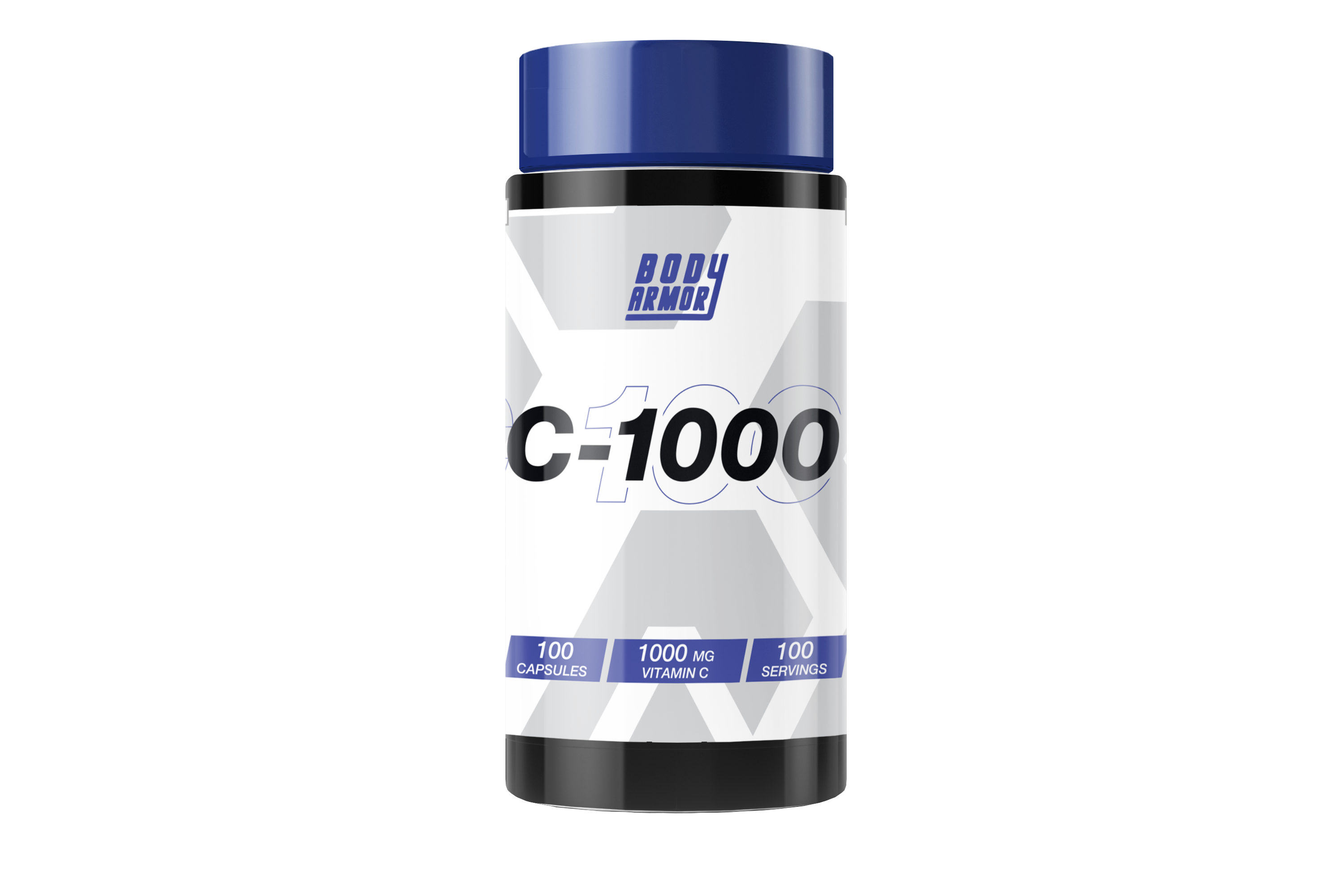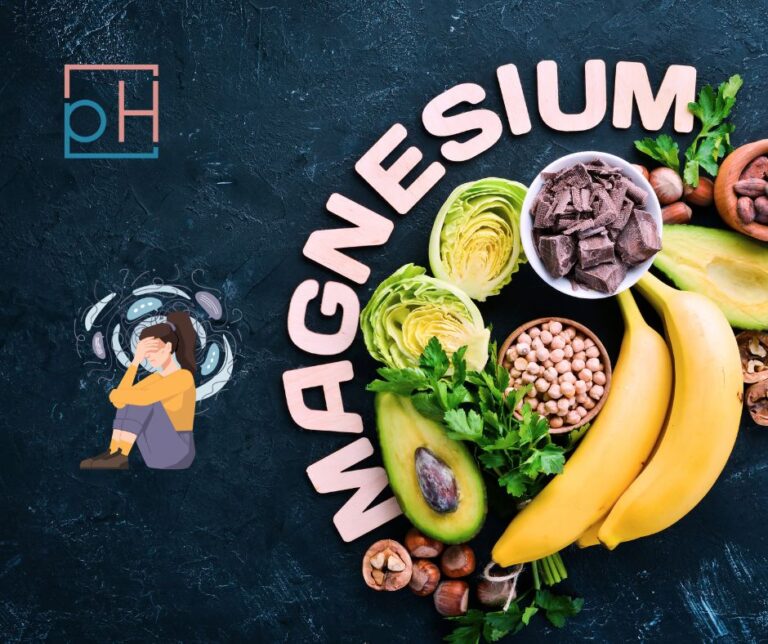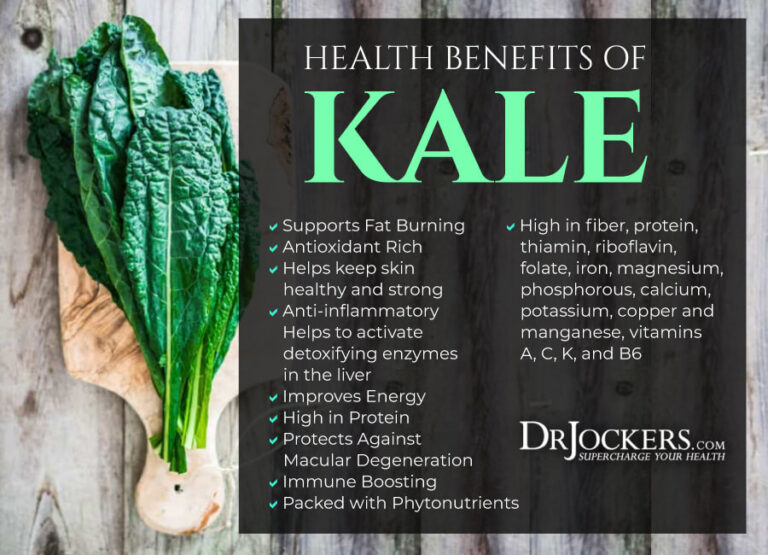Immunity Armor: The Vitamin C Powerhouse That Is Kale
In the vast tapestry of human health, few concepts are as universally sought after as robust immunity. It is the invisible shield that guards us against the ceaseless onslaught of pathogens, the silent protector that dictates our vitality and resilience. For centuries, humanity has sought elixirs and remedies, often overlooking the profound power harbored within the humblest of greens. Among these, one leafy sentinel stands tall, a veritable fortress of nutrition, often underestimated in its capacity to fortify our internal defenses: kale. More than just a trendy superfood, kale is a powerhouse, a green titan, and an undisputed champion in the arena of immune support, largely due to its astonishing concentration of Vitamin C.
This isn’t merely a nutritional factoid; it’s a story – the epic tale of a humble crucifer rising to prominence, armed with an arsenal of vitamins, minerals, and potent phytochemicals. It’s the narrative of how a single leafy green can weave itself into the very fabric of our immune system, providing the foundational strength needed to navigate a world teeming with microbial challenges. For the discerning mind, the knowledgeable seeker of true wellness, understanding kale isn’t just about knowing its nutrient content; it’s about appreciating the intricate dance of biochemistry it orchestrates within us, the profound biological symphony it conducts to build our "Immunity Armor."
The Marvel of Vitamin C: Your Body’s Essential Shield
Before we fully immerse ourselves in the verdant world of kale, it is imperative to first understand the star player: Vitamin C. Scientifically known as ascorbic acid, Vitamin C is a water-soluble vitamin, meaning our bodies cannot store it in significant amounts and require a continuous supply through diet. This simple fact elevates its importance from a mere nutrient to a daily necessity, a constant replenishment essential for myriad physiological functions, with its role in immunity arguably being its most celebrated.
At a fundamental level, Vitamin C is a potent antioxidant. This attribute alone makes it a formidable ally in the fight against oxidative stress – a cellular imbalance caused by an excess of free radicals. These unstable molecules, generated through normal metabolic processes, environmental toxins, and stress, can damage cells, proteins, and DNA, leading to chronic diseases and premature aging. By neutralizing free radicals, Vitamin C acts as a cellular guardian, protecting the integrity of our tissues and the very machinery of our immune system from harm. This foundational protective layer is the first component of our Immunity Armor.
But Vitamin C’s contributions extend far beyond its antioxidant prowess. It is a crucial cofactor in numerous enzymatic reactions, playing a pivotal role in the synthesis of collagen, the primary structural protein in connective tissues, skin, blood vessels, and bones. A strong, intact skin barrier and healthy mucous membranes in our respiratory and digestive tracts are our body’s first line of defense against pathogens. Vitamin C ensures these physical barriers remain robust, preventing invaders from gaining entry. Without adequate Vitamin C, these defenses weaken, making us more susceptible to infection.
Delving deeper into its direct immune functions, Vitamin C acts as a vital modulator for both the innate and adaptive immune systems.
Innate Immunity: This is our body’s rapid, non-specific response to threats. Vitamin C supports several key components:
- Phagocytes: These specialized immune cells (like neutrophils and macrophages) engulf and destroy pathogens. Vitamin C accumulates in high concentrations within phagocytic cells, enhancing their ability to migrate to infection sites, engulf microbes, and kill them through the generation of reactive oxygen species. It also protects these cells from self-inflicted oxidative damage during this intense activity.
- Natural Killer (NK) cells: These lymphocytes are crucial for detecting and destroying virus-infected cells and tumor cells. Vitamin C has been shown to enhance NK cell activity, bolstering their surveillance capabilities.
Adaptive Immunity: This is our body’s specific, long-term memory response, involving lymphocytes.
- Lymphocyte Proliferation: Vitamin C is essential for the proliferation and differentiation of B- and T-lymphocytes, the key players in adaptive immunity. B-cells produce antibodies, while T-cells directly kill infected cells and coordinate immune responses. Optimal Vitamin C levels ensure these cells can multiply effectively to mount a strong defense.
- Cytokine Production: Cytokines are signaling molecules that regulate immune responses. Vitamin C influences the production and balance of various cytokines, helping to orchestrate a coordinated and appropriate immune reaction, preventing both under-response and over-response (which can lead to autoimmune issues).
- Antigen Presentation: It may also play a role in the function of antigen-presenting cells, which are crucial for initiating adaptive immune responses by presenting fragments of pathogens to T-cells.
Beyond these direct interactions, Vitamin C has been shown to reduce the duration and severity of the common cold, and its deficiency significantly impairs immune function, increasing susceptibility to infections. Historically, severe Vitamin C deficiency leads to scurvy, a disease characterized by weakened connective tissue, bleeding gums, and impaired wound healing – all manifestations of a compromised immune and repair system.
Given its multifaceted roles, from antioxidant protection and collagen synthesis to direct immune cell support and modulation, Vitamin C is not merely a supplement; it is a foundational nutrient, a cornerstone of our internal defenses. Understanding its profound impact sets the stage for appreciating why sources rich in this vitamin, particularly those accompanied by a symphony of other beneficial compounds, are so vital for building and maintaining our "Immunity Armor."
Kale: The Verdant Vanguard of Nutrition
Enter kale, the unassuming leafy green that has graced plates and fields for millennia. Its history is deeply rooted in European agriculture, with references dating back to ancient Roman times. A member of the Brassica oleracea species, which also includes broccoli, cabbage, and Brussels sprouts, kale has been a staple crop for centuries, valued for its hardiness, nutritional density, and versatility. While its recent surge in popularity has sometimes relegated it to the realm of fleeting health trends, kale’s enduring legacy and profound nutritional profile firmly establish it as a timeless superfood.
But what exactly makes kale such a formidable player in the quest for optimal health, particularly when it comes to immunity? The answer lies in its astonishingly comprehensive nutrient composition, a vibrant tapestry of vitamins, minerals, fiber, and potent phytochemicals that work in concert to support virtually every system in the body.
Let’s begin with its crowning glory in the context of this discussion: Vitamin C. A single cup of raw kale (about 67 grams) provides well over 100% of the recommended daily intake (RDI) for Vitamin C. To put this into perspective, it often contains more Vitamin C than an orange of comparable weight. This makes kale an exceptionally efficient and bioavailable source of this crucial immune-boosting vitamin, delivered within a matrix of other nutrients that enhance its efficacy.
However, to focus solely on Vitamin C would be to miss the broader masterpiece that is kale’s nutritional profile. It is a true multi-vitamin in leaf form:
- Vitamin K: Kale is perhaps the best source of Vitamin K, particularly Vitamin K1 (phylloquinone), providing several hundred percent of the RDI in a single serving. Vitamin K is essential for blood clotting and plays a critical role in bone health by activating proteins involved in calcium metabolism.
- Vitamin A (Beta-Carotene): Kale is loaded with beta-carotene, a precursor to Vitamin A. Vitamin A is vital for vision, skin health, and, significantly, for immune function, particularly the health of mucous membranes and the differentiation of immune cells.
- Manganese: An essential trace mineral involved in antioxidant defense, metabolism, and bone development.
- Calcium: While often associated with dairy, kale is an excellent plant-based source of calcium, crucial for bone health, nerve transmission, and muscle function.
- Magnesium: Involved in over 300 enzymatic reactions, magnesium supports muscle and nerve function, blood glucose control, blood pressure regulation, and energy production.
- Potassium: An electrolyte vital for maintaining fluid balance, nerve signals, and muscle contractions, including those of the heart.
- Vitamin B6: Involved in metabolism, nerve function, and the formation of red blood cells.
- Copper: Essential for energy production, iron metabolism, and the formation of connective tissue.
- Fiber: Abundant in kale, dietary fiber is critical for digestive health, promoting regularity, feeding beneficial gut bacteria, and helping to regulate blood sugar levels.
Beyond these well-known vitamins and minerals, kale is a treasure trove of phytochemicals – biologically active plant compounds that offer a wide array of health benefits. These are the unsung heroes that elevate kale from merely nutritious to truly medicinal:
- Flavonoids: Kale is particularly rich in powerful flavonoids like quercetin and kaempferol. These compounds are potent antioxidants and possess significant anti-inflammatory properties. Quercetin, in particular, has been studied for its antiviral and immunomodulatory effects, potentially enhancing immune responses and reducing inflammation.
- Glucosinolates: As a cruciferous vegetable, kale contains glucosinolates, sulfur-containing compounds responsible for its slightly bitter taste. When kale is chopped or chewed, these compounds are converted into isothiocyanates, such as sulforaphane and indole-3-carbinol. These compounds are renowned for their powerful detoxification capabilities, supporting the liver’s phase I and phase II detoxification pathways. They also exhibit significant anti-cancer properties and contribute to overall cellular protection.
- Carotenoids: In addition to beta-carotene, kale contains high levels of lutein and zeaxanthin, two carotenoids crucial for eye health, protecting against age-related macular degeneration and cataracts.
The bioavailability of these nutrients in kale is also noteworthy. While some raw vegetables can be harder to digest, kale’s cellular structure, when properly prepared, allows for efficient absorption. Furthermore, the synergistic interplay of its diverse compounds means that the whole is greater than the sum of its parts. For instance, the Vitamin C in kale works alongside its flavonoids and other antioxidants to enhance its protective effects, creating a robust shield against oxidative damage and inflammation.
When considering a food for "Immunity Armor," we seek not just a single nutrient, but a comprehensive package that nurtures the body’s defenses from multiple angles. Kale delivers precisely this. It’s not just a Vitamin C source; it’s a Vitamin C source nestled within a sophisticated matrix of immune-supporting, cell-protecting, and detoxification-enhancing compounds. It is a truly verdant vanguard, ready to defend and fortify.
The Synergy Unveiled: Kale’s Holistic Immune Support
The true magic of kale as "Immunity Armor" lies not in any single nutrient, but in the exquisite synergy of its entire nutritional profile. While Vitamin C acts as a frontline soldier, the supporting cast of vitamins, minerals, fiber, and phytochemicals orchestrates a holistic defense strategy, ensuring every aspect of the immune system is primed and protected.
Consider the interplay of kale’s components:
-
Antioxidant Powerhouse: The combination of Vitamin C, Vitamin A (from beta-carotene), manganese, and a vast array of flavonoids (quercetin, kaempferol) makes kale an exceptional antioxidant source. This multi-pronged attack on free radicals is crucial for immune health. When the body is under attack by pathogens, immune cells generate reactive oxygen species to destroy invaders. While necessary, this process can also lead to collateral damage to healthy cells. Kale’s antioxidants scavenge these excess free radicals, protecting immune cells from self-inflicted harm and reducing systemic oxidative stress, which can otherwise suppress immune function and prolong inflammation. This protective layer ensures our immune system can operate at peak efficiency without burning out.
-
Anti-inflammatory Effects: Chronic inflammation is a silent enemy, weakening the immune system and contributing to a host of chronic diseases. Kale’s rich content of flavonoids and isothiocyanates (from glucosinolates) exhibits powerful anti-inflammatory properties. These compounds can modulate inflammatory pathways, helping to reduce systemic inflammation. A body free from chronic inflammation is better equipped to mount a swift and effective immune response when truly needed, rather than being constantly bogged down by low-grade inflammatory processes. This contributes to a more responsive and less fatigued immune system.
-
Gut Health and Immunity: The gut is often referred to as the "second brain" and, increasingly, as the "first line of immune defense." A staggering 70-80% of immune cells reside in the gut-associated lymphoid tissue (GALT). Kale’s high fiber content is a cornerstone of gut health. Dietary fiber acts as a prebiotic, feeding the beneficial bacteria in our gut microbiome. A thriving and diverse gut microbiome is directly linked to a robust immune system. These beneficial bacteria produce short-chain fatty acids (SCFAs) like butyrate, which nourish gut lining cells, strengthen the intestinal barrier, and modulate immune responses. A healthy gut barrier prevents pathogens and toxins from entering the bloodstream, reducing the burden on the immune system. By promoting a balanced gut flora, kale indirectly but powerfully strengthens our Immunity Armor from the inside out.
-
Detoxification Support: The isothiocyanates derived from kale’s glucosinolates are potent activators of the body’s detoxification enzymes, particularly in the liver. These enzymes are crucial for neutralizing and eliminating harmful substances, including environmental toxins, carcinogens, and metabolic waste products. A body burdened by toxins is a body whose immune system is constantly diverted and strained. By enhancing detoxification pathways, kale helps to lighten the load on the immune system, allowing it to focus its resources more effectively on combating genuine threats. This clean-up crew ensures the immune system operates in an optimal, uncluttered environment.
-
Mineral and Vitamin Cofactors: While Vitamin C takes center stage, the presence of other essential minerals like zinc (though not exceptionally high, it’s present), selenium, and magnesium, alongside Vitamins K, A, and B6, creates a comprehensive micronutrient profile. Many of these act as cofactors for enzymes involved in immune cell function, DNA repair, and energy production, ensuring that all the intricate biochemical processes required for a strong immune response can proceed smoothly. For instance, Vitamin A is critical for the integrity of mucosal surfaces, which are primary entry points for pathogens.
In essence, kale doesn’t just provide a single bullet for immune defense; it offers an entire arsenal, a symphony of nutrients working in harmony. It acts as an antioxidant shield, an anti-inflammatory balm, a gut microbiome nurturer, and a detoxification enhancer – all contributing to a comprehensive "Immunity Armor" that is resilient, responsive, and ready for anything. This holistic support elevates kale beyond a mere ingredient; it transforms it into a foundational pillar of health.
Integrating Kale into Your Daily Life: Practical Strategies
Knowing kale’s immense power is one thing; consistently incorporating it into your diet is another. For the knowledgeable audience, the challenge isn’t persuasion, but practicality. How do we make this green titan a regular, enjoyable, and effective part of our daily routine?
1. Selection and Storage:
- Choose Wisely: Look for kale with dark, vibrant green leaves that are firm and crisp, not wilted or yellowing. Smaller leaves tend to be more tender and less bitter.
- Organic is Optimal: Given kale’s leafy nature, it can be prone to pesticide residue. Opting for organic varieties, if possible, is a wise choice to minimize exposure to unwanted chemicals.
- Proper Storage: Store kale unwashed in a plastic bag in the refrigerator’s crisper drawer. It can last for 5-7 days. Washing it just before use prevents premature spoilage.
2. Preparation Methods: Embracing Versatility:
Kale’s robust texture means it can stand up to various cooking methods, and surprisingly, even raw.
- Raw Power (Massaged Kale): For salads, raw kale can be tough and slightly bitter. The secret is "massaging" it. Remove the tough stems, tear the leaves into bite-sized pieces, drizzle with a little olive oil (healthy fats aid in the absorption of fat-soluble vitamins like A and K), and a pinch of salt. Vigorously massage the kale with your hands for 2-3 minutes until it softens and turns a darker green. This breaks down the tough fibers and mellows the flavor, making it perfect for salads, slaws, or as a bed for other ingredients.
- Smoothie Superstar: A handful or two of raw kale is an excellent addition to any smoothie. Its flavor is easily masked by fruits like berries, banana, or mango, along with a liquid base (water, almond milk). This is an effortless way to get a significant nutrient boost without noticing the "green."
- Sautéed Perfection: Sautéing kale quickly brings out its sweeter notes. Heat a pan with a healthy fat (olive oil, avocado oil), add minced garlic or onions, then add destemmed and chopped kale. Sauté for 5-7 minutes until tender-crisp. A splash of lemon juice at the end brightens the flavor and adds more Vitamin C.
- Roasted Kale Chips: A popular and delicious snack! Toss kale leaves (destemmed, torn, and completely dry) with a little olive oil and your favorite seasonings (salt, pepper, nutritional yeast, chili powder). Roast at 300-350°F (150-175°C) for 10-15 minutes, or until crispy. Watch carefully, as they can burn quickly.
- Added to Soups, Stews, and Stir-fries: Kale’s hearty leaves hold up well in cooked dishes. Add it towards the end of the cooking process (the last 5-10 minutes) to retain more of its vibrant color and nutrient content, especially water-soluble Vitamin C.
- Baked into Dishes: Incorporate finely chopped kale into lasagna, casseroles, quiches, or frittatas. Its mild flavor when cooked blends seamlessly.
3. Maximizing Nutrient Absorption:
- Healthy Fats: As mentioned, pairing kale with healthy fats (olive oil, avocado, nuts, seeds) enhances the absorption of fat-soluble vitamins (A, K) and carotenoids.
- Light Cooking: While some nutrients are lost with heat, cooking can also make others more bioavailable. Steaming or light sautéing is generally preferred over boiling for long periods, which can leach water-soluble vitamins. The "massage" technique for raw kale also helps.
- Fermentation: While not common for kale specifically, some cruciferous vegetables are fermented. This process can enhance nutrient availability and add probiotics, further boosting gut health and immunity.
4. Overcoming Common Objections:
- Bitterness: Massaging, light cooking, and pairing with acidic (lemon, vinegar) or sweet (fruits in smoothies) ingredients can significantly reduce bitterness.
- Texture: If the raw texture is off-putting, opt for cooked methods or blend it into smoothies. The stems are generally tougher and more fibrous; removing them usually improves palatability.
- Repetitiveness: Experiment with different varieties (curly, Lacinato/dinosaur, red Russian) and preparation methods to keep things interesting.
By approaching kale with creativity and an understanding of its culinary potential, it’s easy to transform this nutritional powerhouse from a virtuous chore into a delicious and indispensable component of your daily "Immunity Armor" strategy. It’s about making health both effective and enjoyable, leveraging ancient wisdom with modern culinary flair.
Beyond Immunity: Kale’s Broader Spectrum of Wellness
While our focus has rightly been on kale’s incredible capacity to forge "Immunity Armor," it would be an oversight to ignore the vast spectrum of other health benefits this green titan bestows. Its comprehensive nutritional profile extends its positive influence across nearly every physiological system, truly establishing it as a cornerstone of holistic wellness.
1. Heart Health Guardian:
Kale contributes significantly to cardiovascular well-being through multiple mechanisms. Its high fiber content helps lower cholesterol levels by binding to bile acids in the digestive tract, preventing their reabsorption and encouraging the body to produce more bile, using up existing cholesterol. The rich potassium content helps regulate blood pressure by counteracting the effects of sodium, and its magnesium content further supports healthy heart rhythm. Furthermore, the anti-inflammatory and antioxidant compounds (like quercetin and kaempferol) protect blood vessels from oxidative damage, reducing the risk of atherosclerosis and other heart diseases.
2. Bone Density Defender:
Kale is an exceptional source of Vitamin K1, providing several hundred percent of the RDI in a single serving. Vitamin K is absolutely critical for bone health, activating proteins like osteocalcin, which helps bind calcium to the bone matrix. Beyond Vitamin K, kale also offers a significant amount of plant-based calcium and magnesium, both essential minerals for maintaining strong, dense bones and preventing conditions like osteoporosis.
3. Vision Protector:
The vibrant green color of kale is a clue to its eye-protective properties. It is incredibly rich in lutein and zeaxanthin, two powerful carotenoids that accumulate in the macula of the eye. These compounds act as natural sunglasses, filtering out harmful blue light and protecting the delicate cells of the retina from oxidative damage. Regular consumption of lutein and zeaxanthin-rich foods like kale has been strongly linked to a reduced risk of age-related macular degeneration (AMD) and cataracts, two leading causes of vision impairment and blindness.
4. Skin Radiance Enhancer:
Given its high Vitamin C content, kale is a natural ally for healthy, glowing skin. As we discussed, Vitamin C is essential for collagen synthesis, the protein that provides skin with its structure, elasticity, and firmness. Adequate Vitamin C helps maintain skin integrity, promotes wound healing, and reduces the appearance of wrinkles. Furthermore, kale’s abundance of antioxidants combats free radical damage caused by UV radiation and pollution, which contribute to premature skin aging. The Vitamin A (beta-carotene) in kale also supports healthy skin cell turnover.
5. Weight Management Ally:
For those mindful of weight, kale is an ideal food. It is incredibly low in calories yet remarkably nutrient-dense, making it a highly satiating food. Its high fiber content promotes feelings of fullness, helping to reduce overall calorie intake. The fiber also aids in stable blood sugar levels, preventing energy crashes and cravings that can lead to overeating. Incorporating kale into meals adds volume and nutrition without adding excessive calories, making it a perfect component of a balanced weight management strategy.
6. Cancer Prevention Potential:
The research on cruciferous vegetables like kale and cancer prevention is robust and ongoing. The glucosinolates and their conversion products, isothiocyanates (like sulforaphane and indole-3-carbinol), are particularly noteworthy. These compounds have been shown to induce detoxification enzymes, inhibit carcinogen activation, promote programmed cell death (apoptosis) in cancer cells, and prevent tumor growth. While not a cure, regular consumption of kale contributes to a dietary pattern associated with a lower risk of several cancers, including colon, breast, prostate, and lung cancer.
7. Blood Sugar Regulation:
The fiber in kale, along with its rich antioxidant and anti-inflammatory profile, contributes to better blood sugar control. Fiber slows down the absorption of glucose into the bloodstream, preventing sharp spikes and crashes. This is particularly beneficial for individuals managing diabetes or seeking to prevent metabolic syndrome.
In sum, kale is far more than just an immune booster. It is a comprehensive health investment, providing benefits that ripple through the entire body, from the strength of our bones to the clarity of our vision, the vitality of our skin, and the resilience of our heart. Embracing kale is not just about fortifying our "Immunity Armor"; it is about nurturing a foundation of holistic wellness that supports a vibrant, healthy life.
Cultivating a Lifestyle of Robust Immunity
The journey to robust immunity is not a destination but a continuous path, a lifestyle built on consistent, conscious choices. While kale stands as a formidable champion in this quest, it is crucial to recognize that it is one powerful component within a broader tapestry of health-promoting habits. True "Immunity Armor" is not forged by a single superfood, but by a symphony of synergistic elements.
Kale, with its unparalleled Vitamin C content and rich array of supporting nutrients, provides a critical foundation. It arms the body with the necessary biochemical tools to mount a strong defense, repair damage, and maintain cellular integrity. Its role in reducing oxidative stress, combating inflammation, nurturing gut health, and supporting detoxification creates an optimal internal environment where the immune system can thrive.
However, for this green sentinel to perform at its peak, it must be supported by other pillars of health:
- Diverse Whole Foods Diet: Beyond kale, a diet rich in a variety of fruits, vegetables, whole grains, lean proteins, and healthy fats provides the full spectrum of micronutrients and macronutrients required for optimal immune function. Each color on your plate represents a different set of protective compounds.
- Adequate Sleep: Sleep is a non-negotiable component of immune health. During sleep, the body produces and releases cytokines, proteins that help fight infection and inflammation. Chronic sleep deprivation suppresses immune cell activity and increases susceptibility to illness.
- Stress Management: Chronic stress floods the body with cortisol, a hormone that can suppress immune function over time. Practices like meditation, yoga, mindfulness, spending time in nature, and engaging in hobbies are vital for managing stress and protecting immune resilience.
- Regular Physical Activity: Moderate, consistent exercise boosts circulation, which helps immune cells travel throughout the body more efficiently. It can also reduce inflammation and help flush bacteria from the lungs and airways.
- Hydration: Water is essential for every bodily function, including the transport of nutrients to cells and the removal of waste products. Proper hydration keeps mucous membranes moist, an important physical barrier against pathogens.
- Mindful Supplementation (if needed): While whole foods should always be primary, targeted supplementation with nutrients like Vitamin D, Zinc, or Omega-3s, under professional guidance, can fill nutritional gaps and further support immune function.
Kale doesn’t just nourish the body; it serves as a powerful reminder of the profound wisdom embedded in nature’s bounty. By consciously choosing to integrate such nutrient-dense foods into our daily lives, we are not merely consuming calories; we are investing in our vitality, fortifying our defenses, and empowering our bodies to thrive. It is an act of self-care, a commitment to resilience, and a testament to the understanding that true health begins from within.
Conclusion: Embracing the Kale Advantage
In the intricate dance between our bodies and the world, our immune system stands as the ultimate guardian, an ever-vigilant protector against myriad threats. For the knowledgeable individual, the pursuit of robust immunity is not a fleeting trend, but a fundamental pillar of a well-lived life. And within this pursuit, the humble yet mighty kale emerges as a truly extraordinary ally.
Kale is not just a vegetable; it is a meticulously crafted package of nature’s finest defenses. Its astounding concentration of Vitamin C, far surpassing many conventional sources, provides the essential fuel for our immune cells, fortifies our protective barriers, and acts as a potent antioxidant shield. Yet, its genius extends far beyond this single vitamin. It is the synergistic concert of Vitamin C, Vitamin A, Vitamin K, a host of minerals, and powerful phytochemicals like quercetin, kaempferol, and sulforaphane that truly defines its power. These compounds collectively reduce inflammation, enhance detoxification, nourish our crucial gut microbiome, and protect our cells from oxidative stress, thereby constructing a multi-layered, impenetrable "Immunity Armor."
From its ancient origins to its modern superfood status, kale has consistently offered a profound nutritional bounty. Its versatility in the kitchen allows for seamless integration into diverse culinary preferences, transforming the act of nourishing our bodies into an enjoyable daily ritual. Beyond immunity, kale’s benefits ripple through our cardiovascular system, bones, eyes, skin, and even our fight against chronic diseases, painting a holistic picture of wellness that few other foods can match.
To embrace kale is to embrace a conscious, proactive approach to health. It is to acknowledge the profound power of nature’s provisions and to leverage them in our quest for enduring vitality. So, let us shed any lingering skepticism, let us celebrate this verdant champion, and let us consistently weave the mighty kale into the fabric of our daily lives. For in doing so, we are not merely eating a vegetable; we are actively forging our "Immunity Armor," building resilience, and laying the foundation for a healthier, more vibrant future. The power, indeed, is in the leaves.






